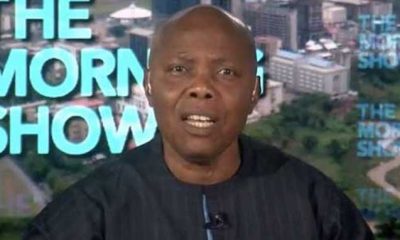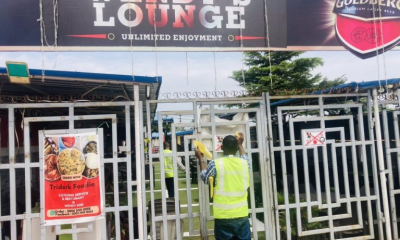Business
Banks and businesses comply with CBN’s directive on old notes — but shortage persists

Commercial banks in Lagos have started disbursing the old naira notes to customers at their various automated teller machines (ATMs) terminals and over the counter.
The banks were also observed to be accepting deposits of the notes — a development which is in compliance with the latest directive of the Central Bank of Nigeria (CBN) on the naira redesign policy.
Yielding to pressure to obey a the supreme court judgement, the CBN had said the old N200, N500, and N1,000 notes remain legal tender until December 31, 2023.
It also directed banks to comply with the court order by issuing and accepting the old notes.
“…consequently, all concerned are directed to conform accordingly,” the apex bank had said.
Checks by TheCable on Wednesday show that some commercial banks in Lagos have started to comply with the directives from both the court and the regulator.
It was observed that an Access Bank branch in Marina area of Lagos dispensed and collected the old notes from customers.
A visit to branches of Access Bank and Wema Bank in Ebute Metta, Lagos, also showed that the banks had started dispensing the old notes over the counter and via ATMs.
At Stanbic IBTC in Abule Ado, customers were paid over the counter, with a cap of N20,000; while Zenith Bank, in the same location, allowed a withdrawal of only N2,000 per transaction via ATM.
More so, customers thronged ATMs at branches of Sterling Bank, Zenith Bank, and the United Bank for Africa (UBA) in the Ikorodu axis of Lagos, to withdraw cash.
“They are dispensing,” a customer said, tersely.
CODES FOR DEPOSITS
While banks were seen to be dispensing the notes, deposits of the old N200, N500, and N1,000 were also accepted from customers.
However, TheCable observed that for deposits to be made, customers are still required to generate a CBN reference code — a process launched in February for the apex bank’s currency redemption exercise.
At all the bank branches visited by TheCable reporters, customers were mandated to generate the reference code before they could deposit their old naira notes.
TRADERS ACCEPTING OLD NOTES GRADUALLY
When it comes to the theatrics of the naira redesign policy, one major problem the CBN’s fresh directive seems to be addressing is the rejection of the old notes by traders and business owners, as the TheCable’s findings show.
Narrating his experience, Musa Ciroma, a businessman who had collected the old notes from the Access Bank branch ATM at Marina, said he had bought petrol with the money and it was accepted.
Motorists and traders in the vicinity also accepted the currency notes. Most businesses in Ikorodu have also started transacting with the old notes.
“Everyone is accepting the old notes. Traders started accept since yesterday [Tuesday],” a tomato seller in Ikorodu, said.
In Alaba Suru market, several traders were also willing to accept the new notes at the time of visit.
A grocery store owner in Satellite Town, who simply identified as Mama Twins, said she started accepting the notes since the apex bank had told them that they could transact with it.
“Since CBN has announced that we could collect the amount, I have started collecting it,” she said.
THE SCEPTICS
But some traders are still sceptical about collecting the old naira notes in spite of the CBN’s directive.
A student, who simply identified as Kunle, said some traders in Fagba, Lagos, were yet to fully embrace the acceptance of the old notes as legal tender.
“I was able to buy pepper from an ‘aboki’ seller. But other traders that sell petty items in the area did not collect the old notes,” Kunle told newsmen.
Similarly, some traders in various markets in the satellite towns of the federal capital territory (FCT) are also unsure about accepting the old naira notes.
According to NAN, some of the traders at Karu, Nyanya, and Mararaba Markets on Tuesday, said they would not accept the notes for any transaction until further notice.
“I am scared of collecting the old notes because I feel it will be rejected by the people I buy my goods from,” Beatrice Ibe, a tomatoes dealer at Nyanya Market, said.
“Yes, I heard that the CBN has directed that we should start to spend and accept the old notes but what about the people in the villages?
“Have they also heard about it? I doubt it.
“I am waiting for other traders in the market to start collecting or accepting the old notes before I will collect from my customers.”
Alphonsus Iguru, another trader at Mararaba Market, said he had some of the old N500 and N1,000 notes but yet to spend them.
Iguru appealed to the CBN to improve its sensitisation on the directive; saying that many people were yet to come to terms with the news.
“I have some of the old notes before but nobody agreed to collect them from me,” he said.
“We do not know what the CBN will say again tomorrow, I don’t want to collect from people now and tomorrow, it will be another story.”
CASH SHORTAGE — A PERSISTING CHALLENGE
Meanwhile, some banks at the time of visit were not dispensing the currency notes due to lack of cash.
An Access Bank branch in the Abule Ado area of Lagos, did not pay customers, citing unavailability of cash.
As at 8am on Thursday, the UBA branch mentioned earlier did not have cash to disburse, a security personnel to TheCable.
Yesterday, customers were able to withdraw N20,000, from the bank’s ATM. But they said the bank stopped issuing the old notes over the counter at about 1pm.
Business
NNPC announces downtime on recruitment portal over unprecedented traffic
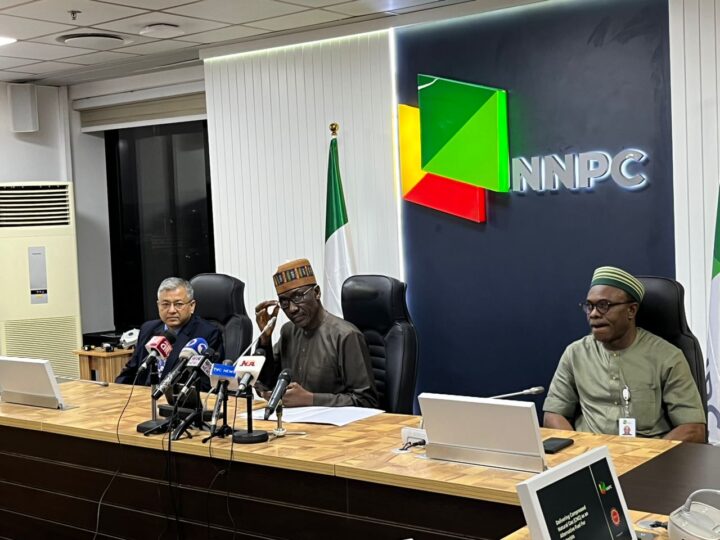
The Nigerian National Petroleum Company (NNPC) Limited has announced that its job application portal is currently experiencing downtime due to an ‘unprecedented’ surge in traffic.
On Friday, NNPC announced a recruitment exercise for qualified candidates, with the application period set to close on August 20.
Checks by Vanguard revealed that the agency’s website is displaying server error messages.
In response via X, NNPC stated that their technical team is actively working to resolve the issue.
“Due to unprecedented traffic to the NNPC Ltd. career page from applicants applying for vacancies, the site is currently experiencing slow load times,” the statement reads.
“Our technicians are working diligently to rectify the problem as quickly as possible. Please be assured that the application process deadline remains August 20, 2024.”
NNPC also reassured applicants of a transparent and merit-based recruitment process, urging capable Nigerians to take advantage of this unique opportunity.
Business
Zenith Bank seeks NGX approval to sell 5bn shares through rights issue
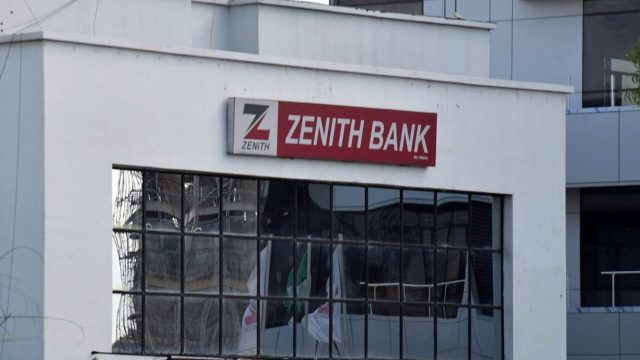
Zenith Bank Plc has sought approval from the Nigerian Exchange (NGX) Limited to sell 5.23 billion shares through rights issue to raise N188.37 billion.
According to a statement on Wednesday signed by Godstime Iwenekhai, head of the issuer regulation department at NGX, the qualification date for the rights issue is July 24.
NGX said Zenith Bank applied for the approval through Stanbic IBTC Stockbrokers Limited, the lender’s its stockbroker.
The capital market regulator said Zenith Bank plans to list a rights issue “of Five Billion, Two Hundred and Thirty-Two Million, Seven Hundred and Forty-Eight Thousand, Nine Hundred and Sixty-Four (5,232,748,964) ordinary shares of 50 Kobo each at N36.00 per share on the basis of one (1) new ordinary share for every six (6) existing ordinary shares held as at the close of business on Wednesday, 24 July 2024″.
On April 12, Zenith Bank announced plans to raise an undisclosed amount in the international and Nigerian capital markets.
According to the company, the funds shall be raised through the issuance of ordinary shares, or preference shares, whether by way of private placement, rights issue or both.
The company also said the board would propose increasing its issued share capital — from N15,698,246,893.50 to N31,396,493,787 — at the AGM.
Zenith Bank’s plan to raise capital comes after the Central Bank of Nigeria (CBN), on March 28, directed commercial, merchant and non-interest banks to increase their minimum capital requirements.
CBN adjusted the capital base for commercial banks with international licences to N500 billion, while national and regional financial institutions’ capital bases were pegged at N200 billion and N50 billion, respectively.
With a capital base of N270.75 billion, Zenith Bank needs N229.25 billion to reach the minimum capital requirement of N500 billion.
Business
‘600k households paid’ as FG resumes cash transfer scheme
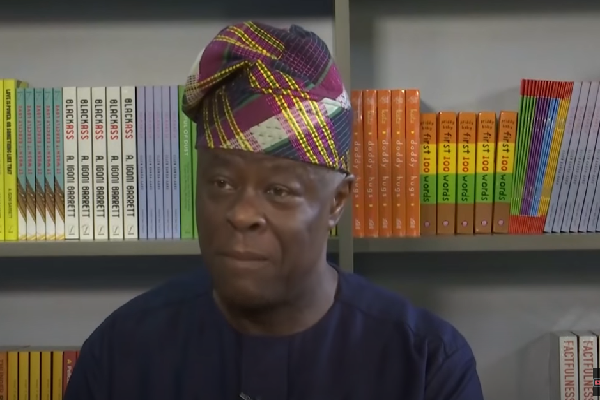
Wale Edun, the minister of finance, says over 600,000 households have benefited from the direct cash transfer programme of the federal government following the resumption of payments.
Edun spoke on Thursday in Abuja during the half-year review ministerial press briefing, themed, ‘Economic Recovery and Growth: Progress and Prospects 2024’.
On July 18, 2023, President Bola Tinubu ordered an immediate review of the conditional cash transfer scheme — an intervention initiative coordinated by the national social investment programme agency (NSIPA).
The president later suspended all programmes administered by NSIPA for six weeks, as part of a probe of alleged malfeasance in the management of the agency and its programmes.
During a radio interview session in Kaduna, Mohammed Idris, the minister of information and national orientation, disclosed the federal government’s plan to resume the intervention schemes.
Speaking at the press briefing, the minister reiterated Tinubu’s commitment to the welfare of ordinary Nigerians and the government’s efforts to ensure transparency and accountability in its social protection initiatives.
“Following the resumption of payments, over 600,000 households have already received this direct transfer this week,” Edun was quoted as saying in a statement by in a statement on by Mohammed Manga, the ministry’s director of information and public relations.
Edun said the government has made significant strides in its economic reforms, “well on its way to achieving a step-change in the revenues of the government; closely in line with the budget for 2024”.
He also announced the government’s exit from the ways and means borrowing mechanism, highlighting successes of the government’s reforms while citing a projected budget deficit of 4 percent in the 2024 fiscal year.
Edun acknowledged the temporary hardships caused by the reforms but assured that Nigerians would soon benefit from the expected outcomes.
He said the government’s “well-coordinated economic policies are beginning to yield results, evidenced by the deceleration in inflation growth, a rise in foreign investments compared to the same period last year”.
The minister said one of the major priorities of the incumbent government in the immediate term is to reduce food prices and focus on providing all the necessary support to increase local food production, given the impact of high food prices on inflation.
He said efforts are underway to achieve this goal.
The minister said with the outcome of the first half of 2024, “the economy is turning the corner.”
Edun added that with macroeconomic stability, the economy is being well positioned for sustained and inclusive growth that creates jobs, lifts millions out of poverty, and drives domestic and foreign investments that would improve the general wellbeing of the average Nigerian.
-

 Health7 days ago
Health7 days agoWhat to eat and avoid when treating malaria
-

 World1 week ago
World1 week agoComputer scientist claiming invention of Bitcoin faces criminal investigation in UK
-
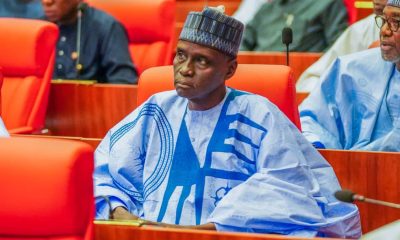
 Politics1 week ago
Politics1 week agoSenator Monguno replaces Ndume as Senate Chief Whip
-

 Celebrities1 week ago
Celebrities1 week agoMohbad’s wife claims Joseph Aloba is her son’s greatest enemy
-

 Politics1 week ago
Politics1 week agoAppeal court affirms Douye Diri as Bayelsa governor
-

 Politics1 week ago
Politics1 week agoActress Hilda Dokubo suspended as Labour Party’s Rivers chairperson
-
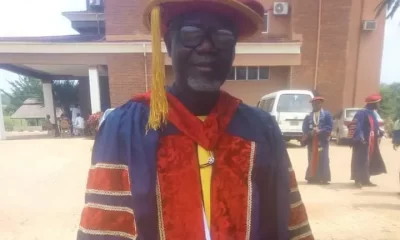
 Politics1 week ago
Politics1 week agoOndo LP Governorship candidate, Dr Ayodele Olorunfemi promises ₦120k minimum wage if elected
-

 Entertainment1 week ago
Entertainment1 week agoRema’s ‘HEIS’ sets record for biggest opening week on Spotify Nigeria in 2024



